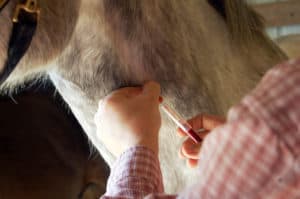
Equine Liver Disease: More Common Than We Think?
Newly identified liver viruses in horses might be more common than we realize.

Newly identified liver viruses in horses might be more common than we realize.

Researchers tested a vaccine model that could help them develop effective protection against equine hepacivirus.
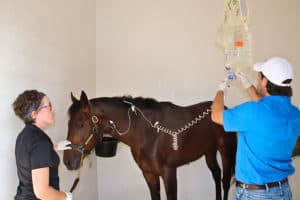
Researcher: Veterinarians should “forget” two viruses once commonly blamed for equine liver disease.

Study: Equine parvovirus-hepatitis, a virus causing fatal liver disease that spreads via vaccines and plasma, has a high prevalence in Germany and probably other European countries.
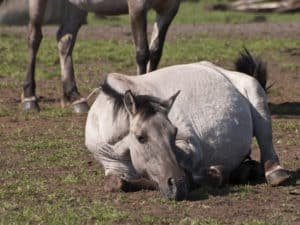
Many other conditions besides colic can cause coliclike signs. And as with colic, delayed treatment or misdiagnosis can have serious consequences. Here’s what you need to know.

Your old horse’s rations might not need to change just because he’s got a few more gray hairs around his eyes. Still, owners should consider some key points when feeding their seniors.
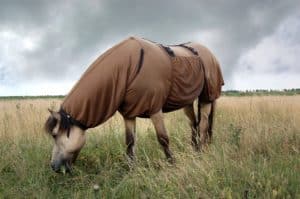
Dr. Rob MacKay shared presented research on ice boots and cryotherapy for laminitic horses, R. equi and insect bit hypersensitivity vaccines, EPM, and more.
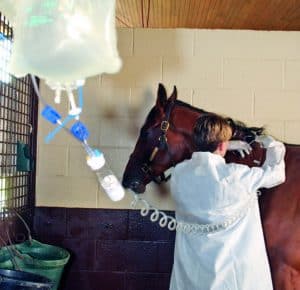
Theiler’s disease, or equine serum hepatitis, is an infrequent but sometimes life-threatening liver disease of adult horses.

Some horses are vulnerable to sun damage. Here’s what to watch for and how to protect against it.

Dr. Rob MacKay recaps studies on heparin for EHM prevention, liver failure caused by supplements, headshaking, and more.

Dr.Rob MacKay recaps studies on heparin for EHM prevention, liver failure caused by a supplement, gastric ulcers, and more.

The liver is a complex organ tasked with many vital functions that maintain and sustain a horse’s health and life.

From behavioral changes to yawning, signs of neurologic problems in horses can be challenging to decipher.

Tweets and take-homes from the Milne lecture and sessions on colic, digestive health, pathology, and more.
Thomas Divers, DVM, Dipl. ACVIM, AVECC, will furnish a game plan to identify and treat diseases of the equine liver.

Tyzzer’s disease primarily affects foals’ livers, causing necrotizing hepatitis (liver disease).
Stay on top of the most recent Horse Health news with
© 2022 Copyright Statement dolor sit amet, consetetur sadipscing User Terms, sed diam nonumy eirmod tempor invidunt ut labore et dolore magna aliquyam erat, sed diam voluptua. At vero eos et accusam et justo duo dolores et ea rebum. Stet clita kasd gubergren, no sea takimata sanctus est Lorem ipsum dolor sit amet.
"*" indicates required fields